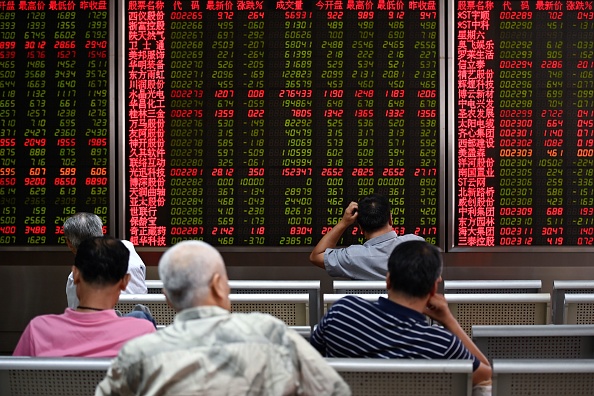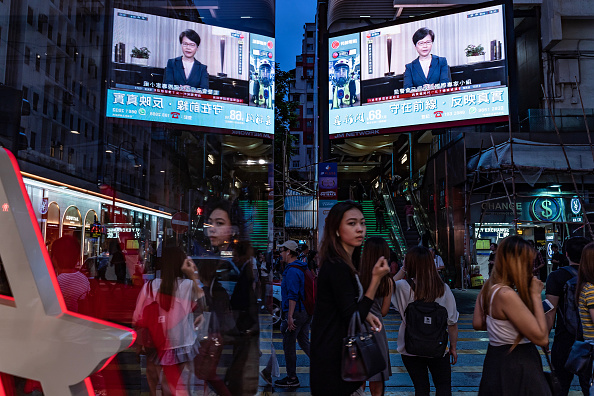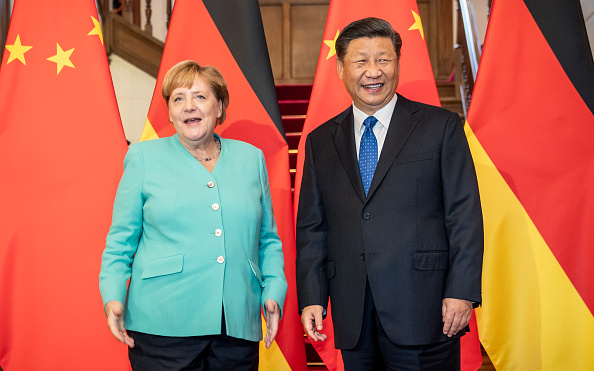
 The Unwinnable War?
The Unwinnable War?Markets lifted after China and the United States agreed to resume negotiations over the ongoing trade war, which has escalated in recent weeks with two-way tariffs going into effect earlier this week on September 1. Markets reacted positively to the news that negotiators will meet in October, despite widespread skepticism of substantive progress made in recent rounds of negotiations.
U.S. taxes on Chinese imports are currently at 21.2%, up from 3.1% when Trump came into office, and there is increasing evidence that the trade war is hurting both economies and threatening global economic health. U.S. manufacturing activity is contracting for the first time since 2016 as most companies struggle to cut China from their supply chain, while China freed up $126 billion worth of loans to stimulate its lagging economy.
One new study projects that the trade war is unwinnable by either country and that the United States must continue buying from China, or retailers will suffer; and China must continue selling to U.S. consumers, or manufacturers will fail. Certainly, both leaders face enormous political costs at home, as President Trump faces a 2020 reelection campaign, and Xi fears the political cost of slowing growth.
 A Simmering Pot
A Simmering PotAfter months of widespread and often violent unrest, Hong Kong Chief Executive Carrie Lam announced she will fully withdraw the bill that would allow extradition to mainland China. The withdrawal of the bill was the original demand by demonstrators, however three months of protests have hardened their position and increased the number of demands to five. Activists have vowed to continue protesting until all their demands have been met.
The other demands include an independent investigation into alleged police brutality; the unconditional release of protesters; using the word "rallies" instead of "riots" and allowing citizens to choose their own leaders. Critics called the retraction of the bill "too little, too late," and one U.S. Senator called it "welcome but insufficient."
Some commentators fear that, should the protests continue, China may deploy its own troops to put an end to the protests. In his latest op-ed for China-US Focus, Minxin Pei writes that a military crackdown would not only bring irreversible damage to Hong Kong, but the overall US-China relationship as well.
 A Fine Balance
A Fine BalanceGerman Chancellor Angela Merkel has arrived in China for a two-day trade-focused trip, with the hope of helping German businesses penetrate the Chinese market. With many German businesses suffering a slowdown at home, Merkel hopes to press for open markets and fair competition in China. Accompanied by a large business delegation, Merkel said that she hopes China and the United States will soon find a resolution to the ongoing trade dispute, as it is stunting global growth.
Hong Kong activists have pressured Merkel to press Beijing on their demands during her visit, and to take a stronger line on issues of human rights. Speaking in Beijing, Merkel stated that the protesters' rights must be respected, and violence must be avoided. President Xi, on the other hand, predictably kept the focus on bilateral trade and pledged to keep China's economy open to Germany, "from the manufacturing sector to the financial and services sectors."
Prepared by China-US Focus editorial teams in Hong Kong and New York, this weekly newsletter offers you snap shots of latest trends and developments emerging from China every week, while adding a dose of historical perspective.
- 2019-08-31 “Sorry, it’s the way I negotiate”
- 2019-08-23 Tit for Tat
- 2019-08-17 Slowdown Ahead?
- 2019-08-09 Yuan on the Rocks
- 2019-08-02 Ratcheting Up the Crisis
- 2019-07-26 Playing Defense
- 2019-07-19 “Stain of the Century”
- 2019-07-12 Whichever Way the Wind Blows
- 2019-07-04 A Gentlemen’s Agreement
- 2019-06-28 A Truce on the Horizon?
- 2019-06-22 Three’s A Crowd
- 2019-06-14 Battle for Hong Kong
- 2019-06-07 Panda Diplomacy
- 2019-05-31 Trade Diversions
- 2019-05-25 Farm Aid or Band Aid?
- 2019-05-17 Risky Business
- 2019-05-10 Two Steps Forward, Two Steps Back
- 2019-05-03 The Final Laps?
- 2019-04-26 The Great Turbine Caper?
- 2019-04-19 Sowing Seeds of Tension